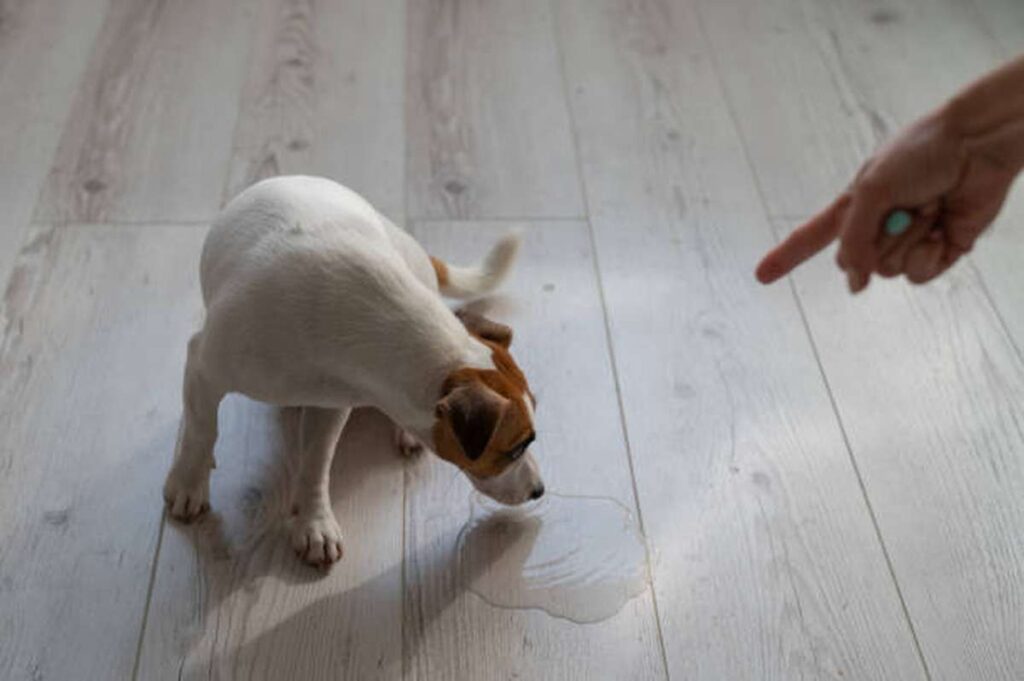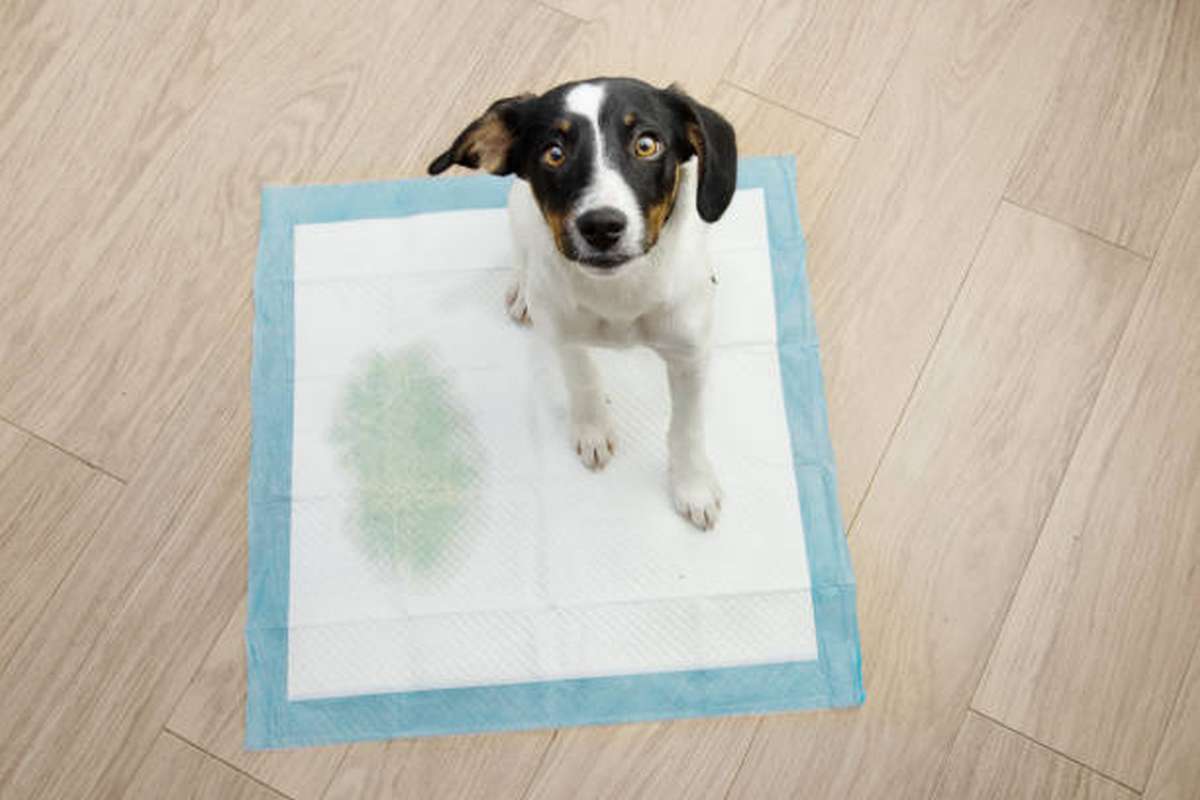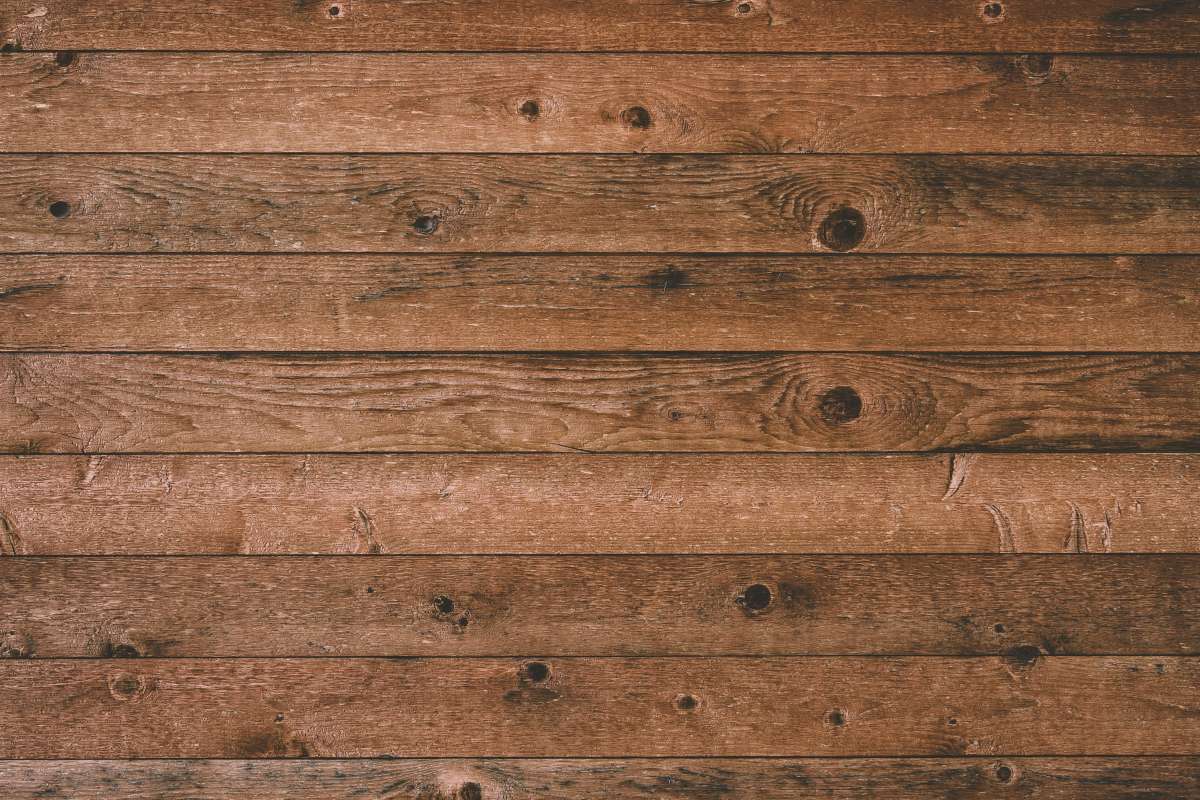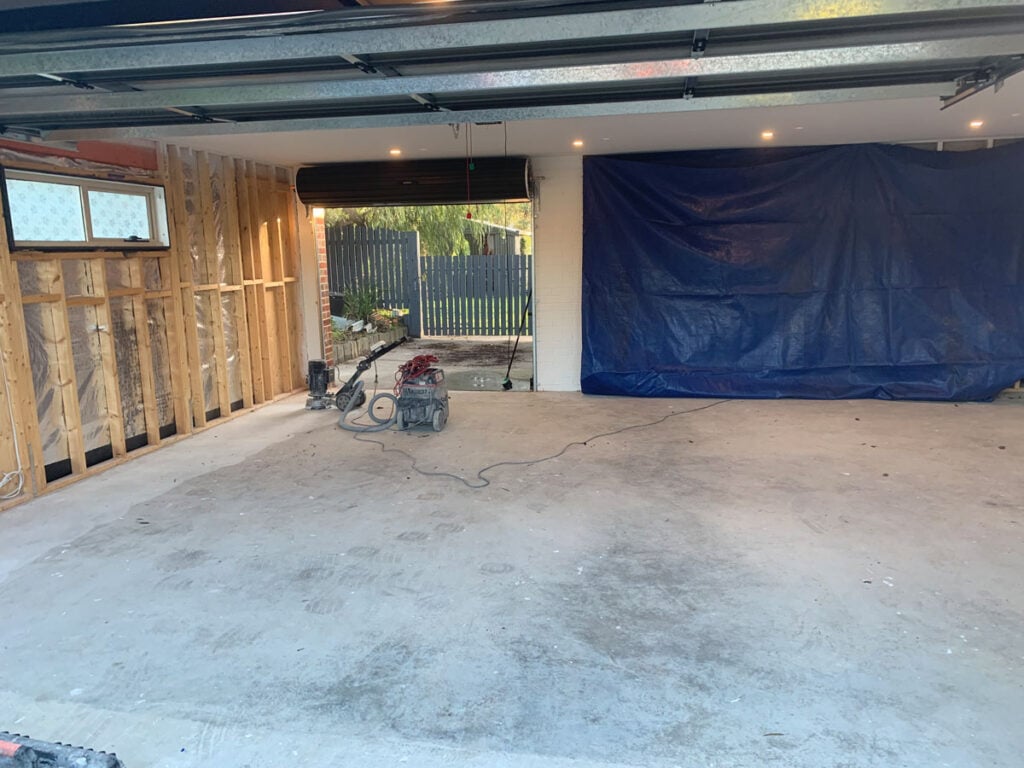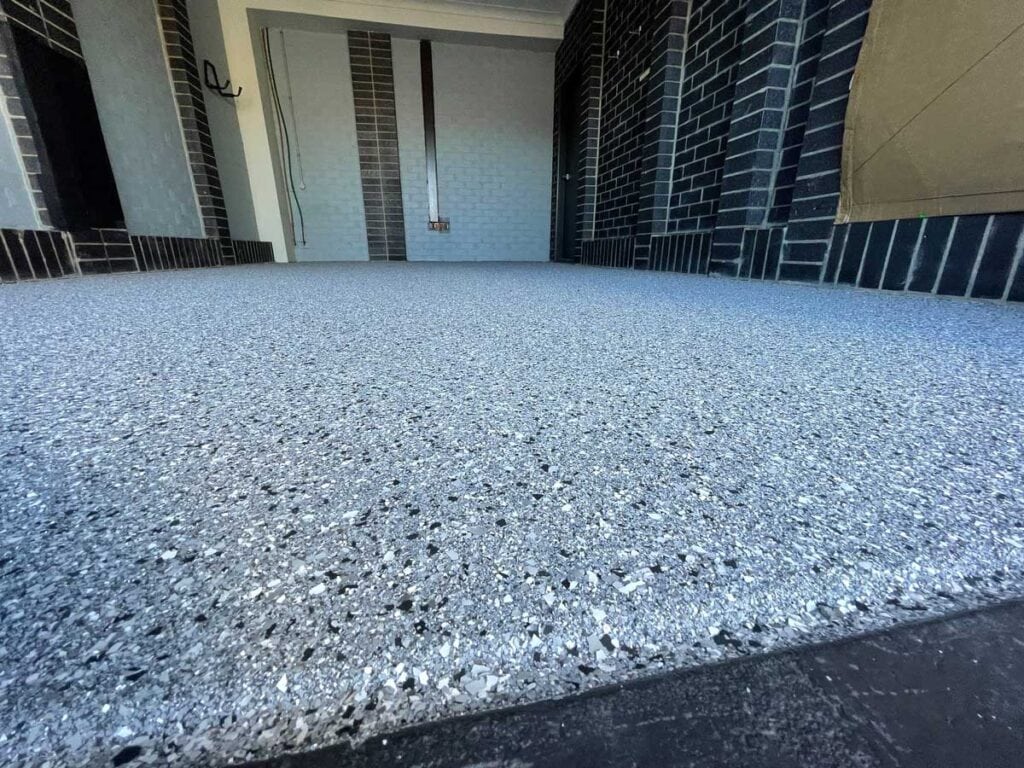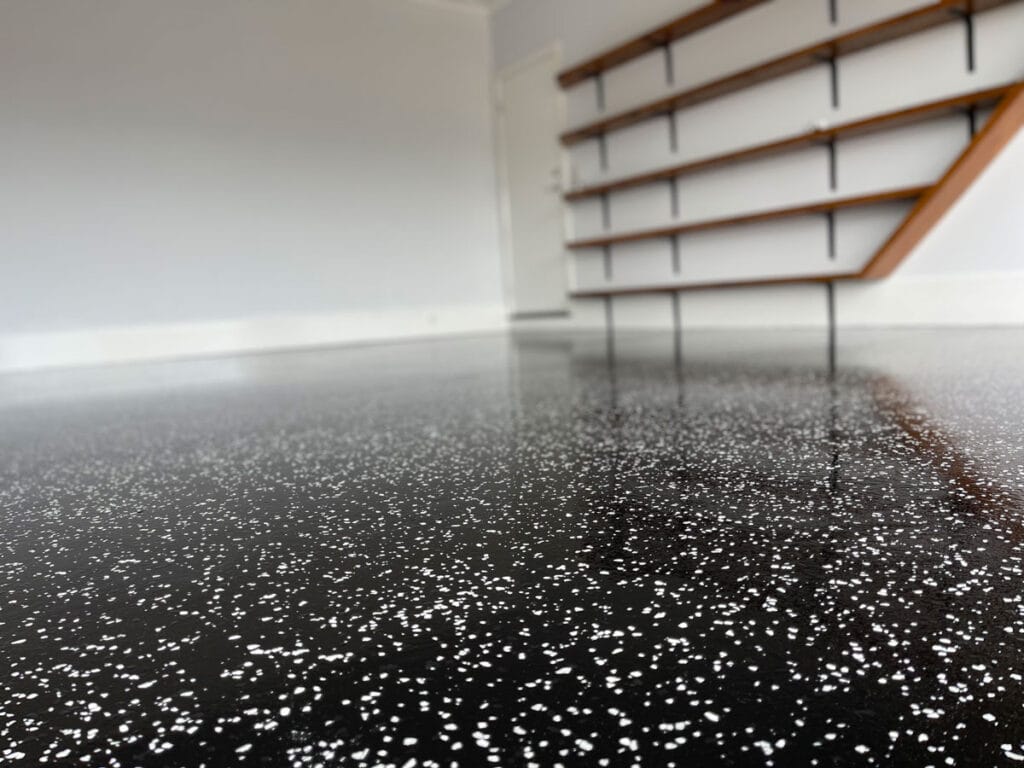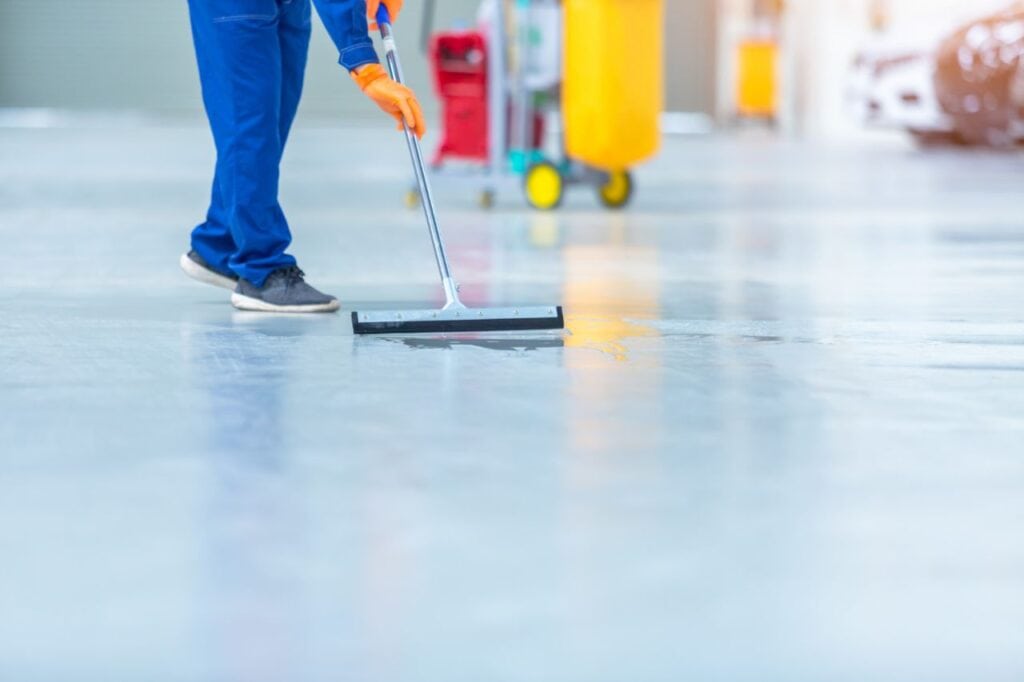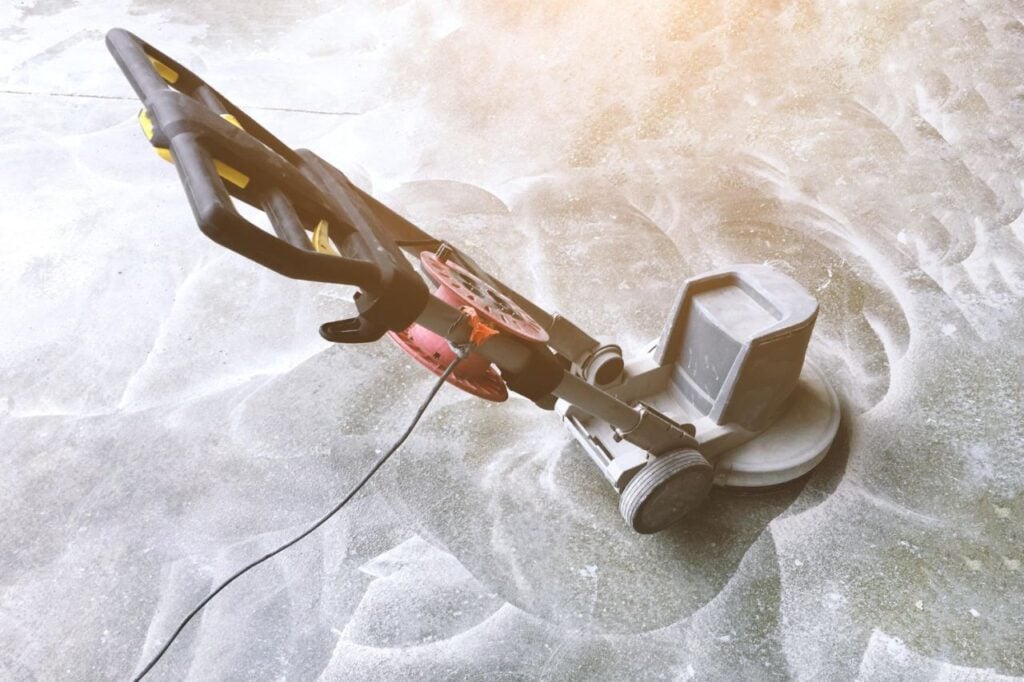Urine is a common cause of unpleasant odours on wood floors, especially from pets such as dogs or cats. This issue can be even more prevalent in homes with babies or toddlers. Regardless of the source, finding an effective solution to eliminating urine odour from wood floors is essential.
Dealing with pet stains and odours is a familiar challenge for pet owners. Pets are beloved family members, but like children, they can create messes. Whether you're in the process of training a young puppy or taking care of an older dog or cat, accidents can happen, leaving behind unsightly urine stains and odours on your beautiful wood floor.
Potty training a pet can be lengthy and challenging, especially when accidents occur on hardwood floors. Aside from the inconvenience of cleaning up the mess, these accidents can also result in long-term damage and persistent odours.
Despite your best efforts to clean up, the lingering smell of old urine can be difficult to eliminate. However, there are effective methods to tackle this issue. Following our guide on removing urine smell from wood floors, you can restore a clean and fresh scent to your home again.
How to Remove Dog Urine Odour from Hardwood Floors
Our beloved dogs bring joy to our lives, but their accidents on hardwood floors can be quite bothersome. Pee stains should be addressed promptly, as they can become increasingly difficult if left untreated. It's not just the visible stain that poses a problem; the odour can also penetrate the wood, making it challenging to eliminate.
Our furry friends hold a special place in our hearts, but even with the best care, they may have accidents in inappropriate places. For example, dog urine on wood floors creates a messy situation and can cause damage and persistent odour concerns.
This article provides helpful solutions if you're facing lingering smells from previous incidents or dealing with a new problem. We've compiled easy and effective methods to clean up the mess and eliminate the odour. So whether tackling a recent accident or addressing someone else's old mess, we've got you covered with the answers you need.
White Vinegar and Grapefruit Oil
The common household ingredient, white vinegar, is a fantastic natural disinfectant and deodoriser that can effectively tackle these stains. To create a cleaning solution, combine one cup of vinegar with warm water in a bucket. You can also include a few drops of grapefruit oil for an added fragrance boost. Scrub the affected floor areas using this safe solution, paying particular attention to the prominent spots. As you scrub, you should notice the odour and stains gradually disappearing.
Wipe With Peroxide Solution
For a recent urine stain, start by blotting up as much liquid as possible using paper towels and discarding them. Next, prepare a strong solution of peroxide and water in a bowl. Dip a cleaning rag into the solution and gently wipe the stained area. Avoid over-saturating the floor and ensure the solution is not left for more than a few minutes.
This remedy can also eliminate urine odour from the subfloor after removing a heavily stained carpet.
Baking Soda
To effectively address pet stains, you can enhance the vinegar or peroxide cleaning method by incorporating baking soda to absorb any remaining moisture and eliminate odours. First, generously sprinkle baking soda over the stained area, forming a thick layer. Allow it to sit for approximately an hour, then vacuum the area. If any dampness persists, repeat the process until the area is dry and odour-free.
Blot the Area Dry With the Towel
After using the towel to blot the area dry, allowing the floor to dry naturally is important. Opening the windows in the room is recommended during this process as it facilitates the dissipation of odours and promotes air circulation. By providing adequate ventilation, the drying process can be accelerated, and the room will be left fresh and free from lingering smells.
Enzymatic Cleaner
Enzymatic cleaners are highly effective in addressing urine stains and odours and offer the advantage of being non-toxic. Specifically designed to target pet odours, these cleaners utilise natural enzymes to break down and neutralise urine, ensuring complete elimination. It is important to follow the instructions provided by the cleaner manufacturer and apply the product directly to the affected area.
It is worth noting that multiple treatments may be necessary for stubborn stains and odours until both the stain and odour are fully eliminated. With some effort, however, the mess can be effectively dealt with without compromising the integrity of your home. However, it is important to know that stain removal may affect the wood, potentially requiring minor sanding or touch-ups. Additionally, regular maintenance of the wood, such as frequent dusting with appropriate clothes and a brushless vacuum, will help keep it clean and nourished.
Other Method
You can effectively eliminate the unpleasant odour from your pet's preferred spot for relieving themselves by utilising suitable tools and products. It is crucial to promptly discover and clean up urine puddles to minimise the chances of stains and lingering odours. However, it's important to note that your task doesn't end once you've wiped up the mess with a clean towel.
- Once the fresh poop has been cleaned, scrub the area with vinegar and water.
- Spray the area with that mixture, wipe it off, and then cover it with baking soda. This will absorb any liquid leftovers and simultaneously deodorise the boards.
- Give it an hour or overnight to sit.
- Use a clean cloth and a light water spray to remove the baking soda.
Is Hardwood Flooring Affected by Dog Urine?
Whether or not your hardwood flooring is sealed, dog urine can still deteriorate it. It can result in even more damage and subfloor breakdown if it seeps into the subfloor, which is never good. Even though it might not affect the wooden floor's structural soundness, the situation still requires immediate attention.
Depending on the PH levels of the floor, whether it is in the sun, and how long the urine has been on the floor, you may see black or white rings instead of structural damage to your floor. The secret is patience because these stains can be challenging to remove. Acting quickly is important because urine can also draw mildew and mould and possibly bring pests.
How to Get Old Dog Pee Odours Out of Wood Floors
A more powerful solution might be required to remove old dog pee stains or smells from hardwood flooring:
- Mix a cup of water with a tablespoon of dish soap, a third of a cup of distilled white vinegar, and a fourth of a cup of baking soda.
- Spray this mixture on the affected area after thoroughly blending it.
- Allow it to sit for at least 15 minutes before cleaning it with a fresh cloth. Lay a layer of baking soda down and leave it for the night. This procedure might need to be repeated several times to eliminate the lingering smell from the area.
What if the Spot Is Fresh?
Did you witness your canine companion in the act? The good news is that removing the urine is simpler when it is still wet. Start by grabbing some paper towels and absorbing as much fresh urine as possible. Avoid spreading the urine and instead focus on soaking it up. If the towels become saturated, switch to fresh ones.
You can blot the area once you have soaked up the fresh urine. Use a damp cloth to clean the affected spot, then dry it with a towel.
Even if you don't detect any lingering odour at this stage, it is essential to eliminate the scent for your dog. If they continue to sense the urine, they may be inclined to repeat the behaviour in the same spot.
Sprinkle baking soda generously over the area and allow it to sit for at least eight hours. Then, vacuum it up the following morning. After vacuuming, use a disinfectant to eliminate any remaining bacteria and household germs.
Use a Cleaner to Remove the Dog Urine Smell
The home above remedies provides effective and natural solutions for eliminating odours, ensuring your and your pets' safety. However, it's worth noting that only some store-bought cleaners are effective. Many options are available that remove odours, tackle stains, and discourage your pet from reusing the same spot.
Using an enzyme-based formula is a recommended approach for combating odours. These cleaners are designed to break down the proteins present in urine, effectively eliminating the foul smell. Additionally, there are bacteria-based solutions that are effective for removing various organic stains and odours, often leaving behind a pleasant citrus scent. Just ensure these products are safe for hardwood floors before applying them.
Cleaning Sealed vs Unsealed Hardwood Floors
Pet urine can penetrate and leave a persistent odour if your hardwood floors are sealed or unsealed. While a polyurethane seal provides some protection against pet damage, it cannot fully safeguard the wood.
To assess the effectiveness of your floor seal, you can perform a simple water test in an inconspicuous area. If the water remains on the surface after several hours, it indicates good protection.
Resealing your floors periodically is recommended, especially after installation, as it helps to reinforce the seams and maintain the seal's effectiveness.
Unsealed hardwood floors are more vulnerable to urine penetration, leading to long-term damage. If not addressed promptly, cleaning the floors and eliminating the odour may become increasingly challenging. Even immediate action may not prevent some degree of damage.
If you have engineered hardwood, it's also essential to exercise caution. While it is less prone to permanent damage due to its composition, it can still retain moisture. Therefore, following these steps whenever possible is advisable to prevent long-term harm.
Preventing Dog Urination on Hardwood Floors
Discover effective preventive measures to protect your exquisite hardwood floors from dog urine stains. By implementing these simple strategies, pet owners can maintain the beauty of their flooring while ensuring their furry companions remain comfortable and well-trained.
Limit Access During Housebreaking:
To avoid accidents on your hardwood floors, it is crucial to restrict your pets' access to these areas during the housebreaking phase. While it may seem strict, allowing your dog access to only a couple of rooms where accidents can be easily managed is a wise approach. Consider keeping them away from rooms with hardwood floors altogether.
Utilise Puppy Pads:
If you find it challenging to entirely prevent accidents on your hardwood floors during the training period, using puppy pads can be a helpful solution. These absorbent pads are designed to capture urine, protecting your floors from damage. Place them in strategic locations where your dog tends to relieve themselves, gradually transitioning them to appropriate outdoor areas.
Apply a High-Quality Floor Sealer:
To safeguard your hardwood floors from moisture deterioration caused by urine spills, it is essential to apply a high-quality floor sealer. Follow the manufacturer's recommendations and reapply the sealant regularly to maintain its protective properties. A reliable sealer acts as a barrier, preventing urine from penetrating the wood and causing long-term damage.
Consider an Invasive Oil Treatment:
For added protection against pet urine spills, opting for an invasive oil treatment can be a more potent and natural alternative to traditional sealers. This treatment strengthens the floor fibres, making it easier to clean up accidents promptly. The enhanced resilience of the hardwood floors minimises the risk of urine stains and odours lingering.
Utilise Crates for Overnight Restraint:
Crates can be an efficient preventative strategy against your dog urinating on your hardwood flooring throughout the night. Contrary to misconceptions, crates provide a safe and comforting space for dogs, resembling their natural dens. By confining your pet to a crate during the night, you ensure they remain comfortable while protecting your hardwood floors from any potential accidents.
By adopting these preventative strategies, pet owners can effectively address the issue of dogs urinating on hardwood floors. Limiting access during the housebreaking phase, utilising puppy pads, applying a high-quality floor sealer, considering invasive oil treatments, and employing crates for overnight restraint all contribute to maintaining the pristine condition of your hardwood flooring. With these measures in place, you and your furry friend can enjoy a harmonious living environment while preserving the elegance of your hardwood floors.
Conclusion
Urine, especially from pets like dogs and cats, is a common source of unpleasant odours on wooden flooring. Homes with infants or toddlers may be more likely to have this problem. There are efficient solutions to the problem of urine stench on wooden floors. The natural disinfectant and deodorizer white vinegar and grapefruit oil can effectively treat these stains. Mix one cup of vinegar with two gallons of hot water in a bucket to make a cleaning solution.
Urine stain and odour removal techniques are the meat and potatoes of this article. You can use enzyme cleansers, baking soda, vinegar and peroxide solutions, blotting with a towel, and vinegar and peroxide solutions. Stain removal may also have an effect on the wood, thus, keeping the wood in good condition is essential. Finally, it's worth noting that persistent stains and odours may require numerous treatments before they go completely. Steps to effectively remove the bad stench from your pet's prefered area for discharging themselves are the most significant elements in this article.
Urine puddles can leave behind unpleasant odours and unsightly stains if not addressed quickly. Hardwood floors may need a more potent treatment to eliminate old dog urine stains or odours: Add one tablespoon of dish soap, one-third of a cup of distilled white vinegar, and one-fourth of a cup of baking soda to one cup of water and stir. When the pee is still wet, it is easier to clean up if the area is new. The instructions for eliminating the smell of dog urine on hardwood floors are the meat and potatoes of this article. Removal of urine, cleaning the damaged area with a damp towel, and finally, disinfecting it to kill any lingering bacteria and germs are all part of these measures.
Odours can be neutralised using an enzyme-based formula, and many types of organic stains and odours can be eliminated with a bacterial-based treatment. Hardwood floors should be resealed on a regular basis to prevent the seal from deteriorating and to reinforce the seams. Finally, because of its construction, engineered hardwood sustains less damage over time. Dog owners should take precautions to prevent pee stains on hardwood floors. To prevent damage to the flooring from pee during housebreaking, it is important to restrict access, use puppy pads, and seal the floors with a high-quality product.
These measures are necessary to avoid future problems. Limiting access during housetraining, using puppy pads, applying a high-quality floor sealant, considering invasive oil treatments, and utilising crates for nighttime restrictions are all excellent ways for pet owners to deal with the problem of dogs urinating on hardwood floors. The hardwood floors will retain their beauty, and the house will be a more peaceful place to live thanks to these precautions.
Content Summary
- Unpleasant odours on wood floors caused by urine from pets can be a common issue.
- Finding effective solutions to eliminate urine odour from wood floors is essential.
- Dealing with pet stains and odours can be a challenge for pet owners.
- Accidents can leave behind unsightly urine stains and odours on hardwood floors.
- Promptly addressing pee stains is important to prevent long-term damage and persistent odours.
- Effective methods are available to tackle urine odour and restore a clean scent to your home.
- White vinegar and grapefruit oil can be used as a natural cleaning solution for urine stains.
- The peroxide solution is effective for recent urine stains and odour removal.
- Baking soda can be incorporated to enhance the cleaning method and eliminate odours.
- Blotting the area dry and allowing natural drying helps dissipate odours.
- Enzymatic cleaners are highly effective in eliminating urine stains and odours.
- Multiple treatments may be necessary for stubborn stains and odours.
- Hardwood flooring can be affected by dog urine, leading to damage and subfloor breakdown.
- PH levels, sunlight exposure, and duration of urine on the floor can result in stains or damage.
- Removing old dog pee stains or odours may require a more powerful solution.
- Fresh urine can be soaked up with paper towels and cleaned with a damp cloth.
- Baking soda can be sprinkled and vacuumed to eliminate odours.
- Utilising suitable tools and products is crucial for removing odours from pet's preferred spots.
- Store-bought cleaners can be effective for removing odours and discouraging reuse of the same spot.
- Pet urine can penetrate and leave a persistent odour on sealed or unsealed hardwood floors.
- Regular resealing of hardwood floors helps maintain their protection against urine damage.
- Unsealed hardwood floors are more vulnerable to urine penetration and long-term damage.
- Engineered hardwood floors can retain moisture and require preventive measures.
- Restricting pets' access to hardwood floor areas during housebreaking is recommended.
- Puppy pads can be used to prevent accidents on hardwood floors during training.
- Applying a high-quality floor sealer protects against urine spills and moisture deterioration.
- Invasive oil treatments provide added protection against pet urine spills.
- Crates can be used for overnight restraint to prevent accidents on hardwood floors.
- Adopting preventative strategies helps maintain the beauty and condition of hardwood floors.
- Limiting access, using puppy pads, applying sealers or invasive oil treatments, and using crates contribute to a harmonious living environment and preserve the elegance of hardwood floors.
Frequently Asked Questions
Opt for Baking Soda
Baking soda naturally neutralises odours. Sprinkle it liberally on a damp area or even an old urine stain, and work the powder gently into the fibres of any fabric, rug or carpet. Let the baking soda sit overnight for maximum odour absorption, then vacuum it up to remove the smell completely.
How long does dog pee smell last? Left untreated, urine takes up to five years to off-gas on its own. The longer dog pee or cat urine sits on a carpet, the worse the problem becomes.
Let the paste hang out for 10 to 15 minutes so the baking soda has had a chance to do its work, and then wipe it away with a damp cloth and dry the spot.
Generally, you can clean hardwood flooring with a hydrogen peroxide solution and a mop or towel. Be sure to wring out the mop or towel so that it is lightly damp; too much water is bad for hardwood (bad for laminate wood-like flooring, too).
If you own a dog, you will have to clean up accidents off the floor at some point. Urine must be removed from Hardwood floors immediately because the standing liquid can warp the wood, soak deep down into the crevices and leave behind odours.
